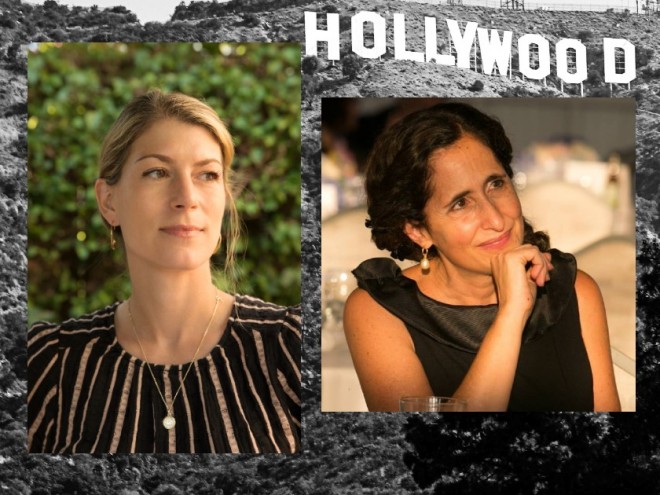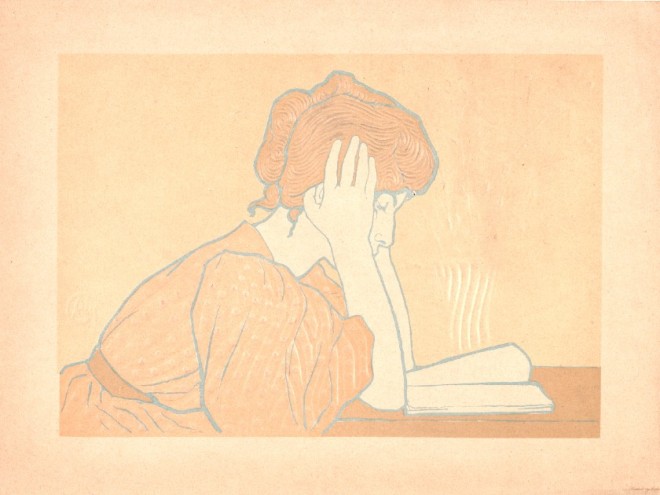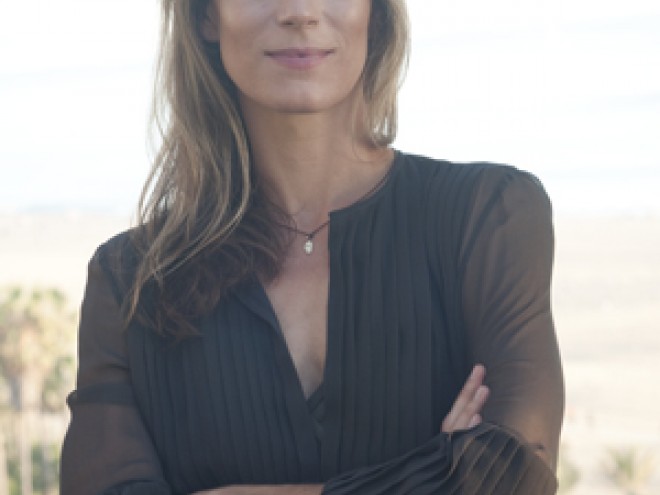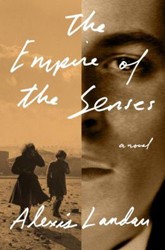Alexis Landau recently completed her PhD in Literature and Creative Writing at USC, where she currently teaches writing. The Empire of the Senses is her first novel. Originally from Los Angeles, she lives there with her husband and two children. She will be blogging here all week for Jewish Book Council’s Visiting Scribe series.
One of the first questions many people ask me about the book is if it reflects my own family history — if it is, to a certain extent, my family story. And the answer is resoundingly no. I was actually drawn to write this detailed generational story because there is such a lack of story in my own family. I am an only child, and my parents are estranged from all of their relatives. My grandparents have died, and even when they were living there wasn’t much contact. The concept of having an extended family, of aunts, uncles, and cousins was and still is a foreign one. I often wonder about my family — where they came from, what my great grandparents were like, but I received vague blurry answers that never felt satisfactory. The facts changed to the point at which it didn’t seem to matter anymore — sometimes my father’s family was said to have emigrated from Russia, sometimes Lithuania or Poland, sometimes even Germany. The lack of information was often coupled with a shrug, because no one seemed all that interested in talking about it. The few stories that do exist are more recent memories that my mother and father recounted about growing up in the ’40s and ’50s and even these stories are not told often. Anything before the postwar period is pretty much a blank. So in my desire for some kind of family story, I decided to create one, and this desire for a better understanding of my past, even if it wasn’t my past, but a past, is in part what shaped the writing of this book.
Why I decided to focus on this particular period in history is another question I’m frequently asked. In 2007 the Met had an exhibit Glitter and Doom about the artists who were working in Berlin in the ’20s and ’30s, such as Otto Dix and Max Beckmann. This was always my favorite period in art history and during the exhibit, while viewing all the paintings collected in one place, and information about the people who influenced the painters as well as the painters themselves, I became so swept up in it and thought, “I have to write a novel about this time and place — such an intense, foreboding but also incredibly creative period in European history.” Then the second starting point occurred during my time as a graduate student in English literature and Creative Writing at USC — I had to choose a critical field of interest which is separate from one’s creative work, and I became increasingly interested in the idea of Jewish identity and assimilation during the interwar period. It seemed crucial to understand what it meant to be Jewish before the Holocaust, given how after the Holocaust, and after the birth of Israel, Jewish identity underwent so much change and redefinition. I remember very clearly meeting with my advisor. I didn’t even know if it I would be allowed to focus on the interwar period, because it didn’t feel as though it were a real category or genre. But my advisor was really supportive and said: “Yes! You can do that. That sounds amazing.” So I started delving into the work of writers such as Kafka and Joseph Roth, and I ended up focusing on Irène Némirovsky, the author of Suite Française. No one had heard of her, not even in my department, which was another reason why I wanted to write about her. Her circumstances in terms of being Jewish and in terms of being highly assimilated and well off — a lot of the cultural trappings were similar to Lev’s circumstances (the protagonist of The Empire of the Senses), which increased my interest in her life as a Russian Jewish writer living in Paris between the wars.
Also, in terms of beginning the book at the start of World War I and ending the book in 1928, I wanted to focus on this time period not only because it was such an explosion of art and creativity, but also because during this time in Berlin, there were so many forces undermining the status quo, in terms of sexuality and gender, as well as the political climate, and I was excited to convey all of these intersecting and sometimes conflicting cultural currents through the characters and the choices they make.
The “Top Five” books that inspired me while I was writing The Empire of the Senses:
1. Suite Francaise by Irene Nemirovsky
2. My Brilliant Friend, The Story of a New Name and Those Who Leave and Those Who Stay by Elena Ferrante (a trilogy following the evolution of a friendship between two women in Naples Italy, from the 50s to the near present day)
3. Enemies, A Love Story by Isaac Singer (a wonderfully funny and insightful novel about Jewish refugees living in New York after the war)
4. The Radetzky March by Joseph Roth (an epic generational novel about the fall of the Austro-Hungarian empire)
5. Glitter and Doom: German Portraits from the 1920s by Sabine Rewald and Ian Buruma (a fantastic collection of paintings by artists working during this period, who were still reeling from World War I and trying to understand and define a new era of unprecedented sexuality and artistic freedom)
In the New York area? See Alexis Landau live at JBC’s Unpacking the Book event on February 24th at The Jewish Museum. Find out more information here.
Related Content:
- On the Eve: The Jews of Europe Before the Second World War by Bernard Wasserstein
- Reading List: Irene Nemirovsky
- Jews in Nazi Berlin: From Kristallnacht to Liberation edited by Beate Meyer, Hermann Simon, Chana Schutz
Alexis Landau is a graduate of Vassar College and received an MFA from Emerson College and a PhD in English Literature and Creative Writing from the University of Southern California. She is the author of The Empire of the Senses and lives with her husband and two children in Los Angeles.



